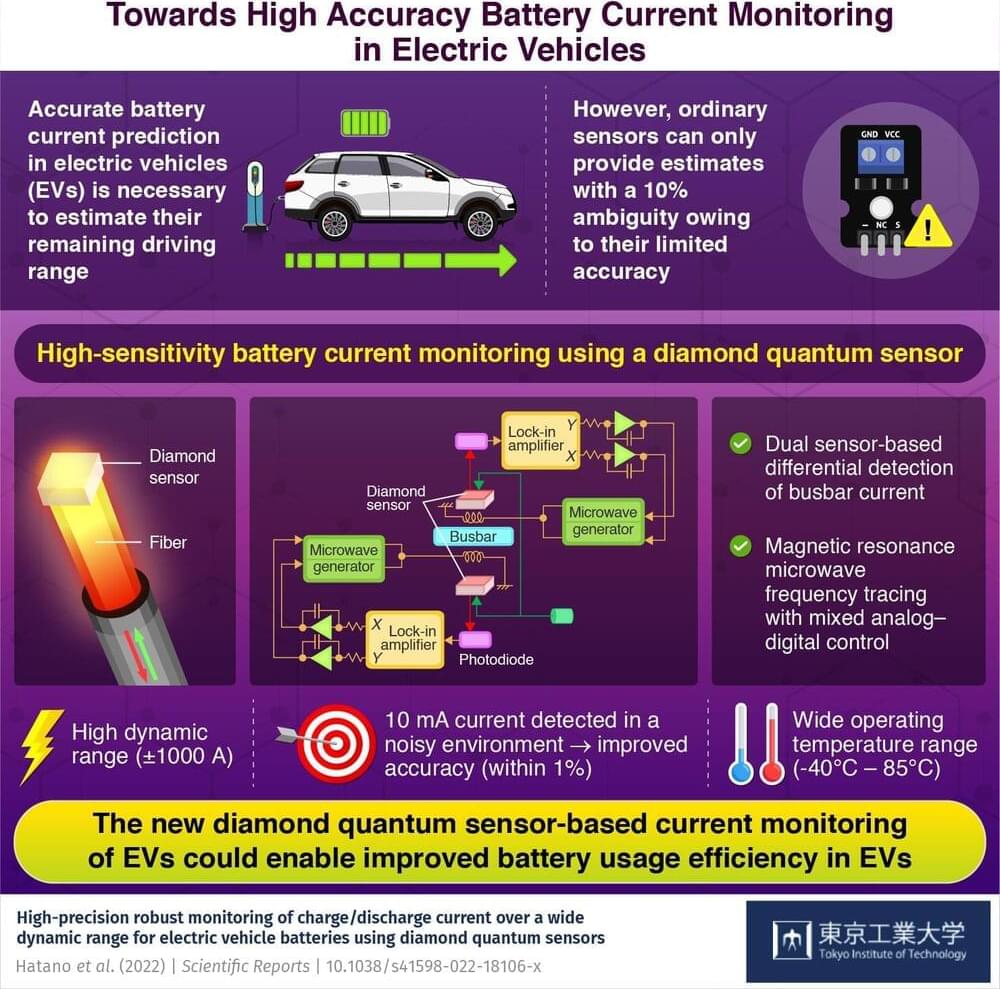The popularity of electric vehicles (EVs) as an environmentally friendly alternative to conventional gasoline vehicles has been on the rise. This has led to research efforts directed toward developing high-efficiency EV batteries. But, a major inefficiency in EVs results from inaccurate estimations of the battery charge. The charge state of an EV battery is measured based on the current output of the battery. This provides an estimate of the remaining driving range of the vehicles.
Typically, the battery currents in EVs can reach hundreds of amperes. However, commercial sensors that can detect such currents cannot measure small changes in the current at milliampere levels. This leads to an ambiguity of around 10% in the battery charge estimation. What this means is that the driving range of EVs could be extended by 10%. This, in turn, would reduce inefficient battery usage.
Now, a team of researchers from Japan, led by Professor Mutsuko Hatano from Tokyo Institute of Technology (Tokyo Tech), has now come up with a solution. In their study published in Scientific Reports, the team has reported a diamond quantum sensor-based detection technique that can estimate the battery charge within 1% accuracy while measuring high currents typical of EVs.
